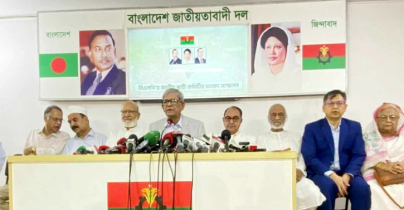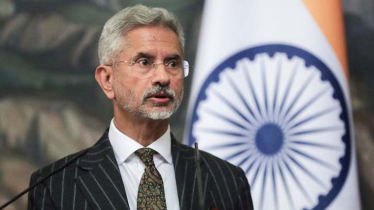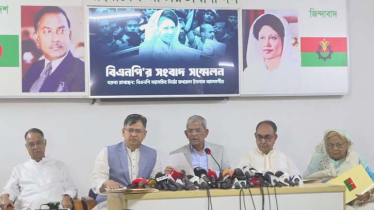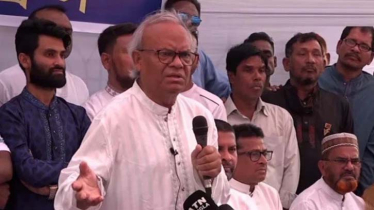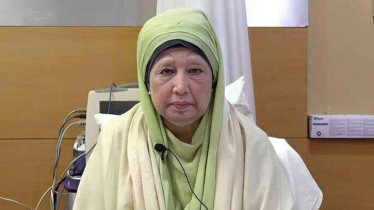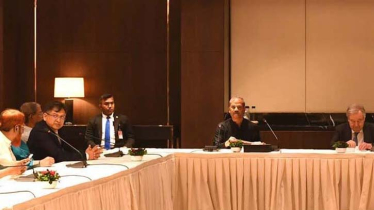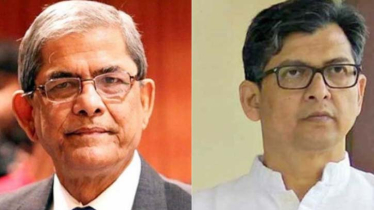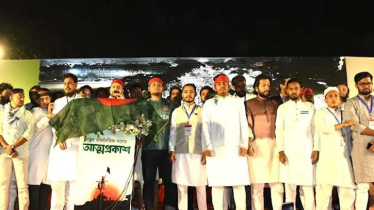
Photo : Messenger
After the dust has settled from the 12th parliamentary elections in Bangladesh, a perplexing question has taken center stage in the political arena – who will occupy the opposition benches? The Independents, a majority of whom are ruling party leaders, have secured the second-largest number of seats, leaving observers pondering the formation of an opposition alliance.
In a country that follows the Westminster System, a formal opposition is a constitutional necessity, and it usually comprises the party or coalition with the second-largest number of seats in the House. However, the current scenario bears a striking resemblance to the aftermath of the first parliamentary polls on March 7, 1973.
While the constitution itself does not explicitly outline the process for opposition formation, the rules of procedure in parliament provide some guidance. According to these rules, the "Leader of the Opposition" is the member of parliament, recognised by the Speaker, leading the party or group in opposition to the government with the greatest numerical strength in the House.
Local government election expert, Badiul Alam Majumder, weighed in on the matter, asserting that since the Independents were not elected under the banner of the ruling party, Article 70 of the constitution – which bars lawmakers from voting against their party – would not apply to them, clearing the path for them to potentially form an opposition alliance.
The election results revealed that the Awami League secured 222 seats, while the traditional opposition party, Jatiya Party, only managed to win 11 seats. The Independents, mostly composed of ruling party leaders, emerged as a formidable force with 62 seats.
Despite the uncertainty surrounding the formation of the opposition, Awami League General Secretary Obaidul Quader declared that Jatiya Party would be the main opposition in the 12th parliament. Quader addressed the media during a press conference at the AL president Sheikh Hasina's office in Dhaka's Dhanmondi.
When questioned about the possibility of an Awami League versus Awami League scenario in parliament, Quader dismissed the notion, emphasising that Jatiya Party is a distinct political entity. He stated, "They are the Jatiya Party, not the Awami League. The independent candidates are independent. And if you consider parties, then the Jatiya Party will be the opposition in the parliament."
As the nation waits for a resolution to this unprecedented situation, political analysts and citizens alike are closely monitoring the developments that will shape the dynamics of the 12th parliamentary session in Bangladesh.
During the briefing, Quader also accused the BNP of adopting a strategy of "rumor terrorism" in addition to its well-known penchant for arson attacks. He dismissed the notion that the government could be destabilised by what he termed as mere "word bombs," emphasising the resilience of the administration.
Quader, who also serves as the Minister of Road Transport and Bridges, suggested that the BNP finds itself trapped in quicksand and warned that the AL government would only grow stronger if the BNP persisted in its efforts to topple the government. He contended that if the BNP had embraced positive politics, it could have avoided its current setback, remarking, "BNP itself fell in a ditch when it tried to bring down the government."
Addressing the ongoing crisis, Quader assured that a comprehensive work plan had been devised to overcome the challenges. He acknowledged that resolving a crisis takes time but expressed confidence that the government and the AL party were committed to resolving the issues promptly.
Responding to queries about the rise in prices of essential commodities, Quader revealed that Prime Minister Sheikh Hasina had instructed all ministries to formulate work plans during the first cabinet meeting of the new government. He assured the public that steps were already being taken to curb the price hike of essential goods, highlighting an emergency meeting called by the AL to address various public concerns.
Quader emphasised that both the government and the opposition must align with pro-liberation forces. He asserted that those who oppose the country's independence do not truly believe in it.
Regarding the AL's popularity, Quader confidently stated that the symbol of the "Boat" had gained increased support. He refuted claims that independent candidates were strategically introduced to create conflict in the country, asserting that such statements had been proven false.
Messenger/Fardin

